Curate Thyself PhD Symposium (3/17) and DigCCurr Experts Meeting (3/18-3/19): Faculty Bios
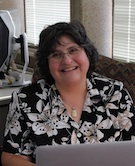 Dr. Suzie Allard is an associate professor in the
University of Tennessee School of Information Sciences and is also the acting director of research
and acting director of the Center for Information & Communication Studies in the College of
Communication and Information. Her research focuses on how scientists and engineers use and
communicate information particularly in distributed virtual scientific organizations and in big data
projects. Her research examines the sociocultural issues surrounding the full data lifecycle in
scientific organizations. Allard is currently the co-lead of the SocioCultural Issues Working Group
for the NSF funded project DataONE which enables "new science and knowledge creation through
universal access to data about life on earth and the environment that sustains it." Her research has
been published in numerous journals and books as well as presented at venues on three continents.
Her teaching focuses on science information and science data curation. Allard is PI or Co-PI on
projects funded by foundations and government agencies including the U.S. Institute for Museum and
Library Services, the U.S. National Science Foundation and the Sloan Foundation. She is a member of
the DataONE Leadership Team and the Networked Digital Library of Theses and Dissertations Board of
Directors.
Dr. Suzie Allard is an associate professor in the
University of Tennessee School of Information Sciences and is also the acting director of research
and acting director of the Center for Information & Communication Studies in the College of
Communication and Information. Her research focuses on how scientists and engineers use and
communicate information particularly in distributed virtual scientific organizations and in big data
projects. Her research examines the sociocultural issues surrounding the full data lifecycle in
scientific organizations. Allard is currently the co-lead of the SocioCultural Issues Working Group
for the NSF funded project DataONE which enables "new science and knowledge creation through
universal access to data about life on earth and the environment that sustains it." Her research has
been published in numerous journals and books as well as presented at venues on three continents.
Her teaching focuses on science information and science data curation. Allard is PI or Co-PI on
projects funded by foundations and government agencies including the U.S. Institute for Museum and
Library Services, the U.S. National Science Foundation and the Sloan Foundation. She is a member of
the DataONE Leadership Team and the Networked Digital Library of Theses and Dissertations Board of
Directors.
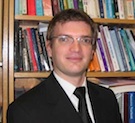 Dr. Ian Anderson is Senior Lecturer and
Director of Museum Studies at the Humanities Advanced Technology and Information Institute (HATII)
at the University of Glasgow. His research interests in the field of Digital Heritage focus on
digital content creation, the use and development of information systems and information
visualisation. He has recently completed digital curation evaluation research as part of the
European Union funded 3D Coform project (http://www.3d-coform.eu/) that sought to establish 3D
documentation as an affordable, practical and effective mechanism for long term documentation of
tangible cultural heritage. With Dr Ruggero Lancia he is currently supervising an AHRC Research
Fellowship project DEDICATE (DEsign's Digital Curation for ArchiTecture
http://architecturedigitalcuration.blogspot.co.uk/) that examines the curation of digital records
related to the Built Environment, especially to Built Heritage. With Prof Ronan Deazley in the
School of Law he is a partner in CREATe (http://www.create.ac.uk/) an RCUK funded research centre
for copyright and new business models in the creative economy. Anderson and Deazley are researching
the role that copyright plays in shaping the behaviour of UK archival institutions towards making
their collections available online. He has most recently published, with Matt Barr, 'Reflecting on
the technical development of the Mapping Sculpture project '. Sculpture Journal, 21 (2), 2012.
Dr. Ian Anderson is Senior Lecturer and
Director of Museum Studies at the Humanities Advanced Technology and Information Institute (HATII)
at the University of Glasgow. His research interests in the field of Digital Heritage focus on
digital content creation, the use and development of information systems and information
visualisation. He has recently completed digital curation evaluation research as part of the
European Union funded 3D Coform project (http://www.3d-coform.eu/) that sought to establish 3D
documentation as an affordable, practical and effective mechanism for long term documentation of
tangible cultural heritage. With Dr Ruggero Lancia he is currently supervising an AHRC Research
Fellowship project DEDICATE (DEsign's Digital Curation for ArchiTecture
http://architecturedigitalcuration.blogspot.co.uk/) that examines the curation of digital records
related to the Built Environment, especially to Built Heritage. With Prof Ronan Deazley in the
School of Law he is a partner in CREATe (http://www.create.ac.uk/) an RCUK funded research centre
for copyright and new business models in the creative economy. Anderson and Deazley are researching
the role that copyright plays in shaping the behaviour of UK archival institutions towards making
their collections available online. He has most recently published, with Matt Barr, 'Reflecting on
the technical development of the Mapping Sculpture project '. Sculpture Journal, 21 (2), 2012.
Dr. Denise Anthony, University of North Carolina at Chapel Hill
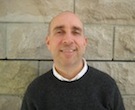 Dr. Peter Botticelli has a Ph.D. in History from the
University of Illinois at Urbana-Champaign, and an M.S.I. degree with a concentration in Archives
and Records Management from the University of Michigan School of Information. His most recent
position was at University of Arizona School of Information Resources and Library Science, where he
directed the School’s Digital Information Management (DigIn) graduate certificate program. In
summer 2013, he will be joining the faculty at Simmons College Graduate School of Library and
Information Science. Previously, he held research positions at Cornell University Library, the
University of Michigan, and Harvard Business School. He has taught courses on digital curation,
digital libraries, scholarly communication, and digital preservation, and he has published research
in history and archival studies.
Dr. Peter Botticelli has a Ph.D. in History from the
University of Illinois at Urbana-Champaign, and an M.S.I. degree with a concentration in Archives
and Records Management from the University of Michigan School of Information. His most recent
position was at University of Arizona School of Information Resources and Library Science, where he
directed the School’s Digital Information Management (DigIn) graduate certificate program. In
summer 2013, he will be joining the faculty at Simmons College Graduate School of Library and
Information Science. Previously, he held research positions at Cornell University Library, the
University of Michigan, and Harvard Business School. He has taught courses on digital curation,
digital libraries, scholarly communication, and digital preservation, and he has published research
in history and archival studies.  Dr. Kevin Cherry is the deputy secretary of the Office of
Archives and History, North Carolina Department of Cultural Resources. Cherry came to Cultural
Resources from the Institute of Museum and Library Services in Washington, D.C., where he
coordinated the nation’s largest competitive grant program for libraries and archives.
Dr. Kevin Cherry is the deputy secretary of the Office of
Archives and History, North Carolina Department of Cultural Resources. Cherry came to Cultural
Resources from the Institute of Museum and Library Services in Washington, D.C., where he
coordinated the nation’s largest competitive grant program for libraries and archives.
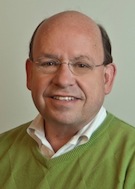 Paul Conway is associate professor at the University of
Michigan School of Information. He teaches courses on digitization, preservation, archives, and the
ethics of new technologies. His research encompasses the digitization of cultural heritage
resources, particularly photographic archives, the use of digitized resources by experts in a
variety of humanities contexts, and the measurement of image and text quality in large-scale
digitization programs. He has been a pioneer in charting the challenges and opportunities that
digital information technologies present to preservation and archival science. He has extensive
administrative experience in the cultural heritage sector and has made major contributions over the
past 30 years to the literature on archival users and use, preservation management, and digital
imaging technologies. He has held positions at the National Archives and Records Administration
(1977-87; 1989-92), the Society of American Archivists (1988-89), Yale University (1992-2001), and
Duke University (2001-06). He holds a Ph.D. from the University of Michigan. In 2005, Conway
received the American Library Association's Paul Banks and Carolyn Harris Preservation Award for his
contributions to the preservation field. He is a Fellow of the Society of American Archivists.
Paul Conway is associate professor at the University of
Michigan School of Information. He teaches courses on digitization, preservation, archives, and the
ethics of new technologies. His research encompasses the digitization of cultural heritage
resources, particularly photographic archives, the use of digitized resources by experts in a
variety of humanities contexts, and the measurement of image and text quality in large-scale
digitization programs. He has been a pioneer in charting the challenges and opportunities that
digital information technologies present to preservation and archival science. He has extensive
administrative experience in the cultural heritage sector and has made major contributions over the
past 30 years to the literature on archival users and use, preservation management, and digital
imaging technologies. He has held positions at the National Archives and Records Administration
(1977-87; 1989-92), the Society of American Archivists (1988-89), Yale University (1992-2001), and
Duke University (2001-06). He holds a Ph.D. from the University of Michigan. In 2005, Conway
received the American Library Association's Paul Banks and Carolyn Harris Preservation Award for his
contributions to the preservation field. He is a Fellow of the Society of American Archivists.
 Dr. Costis Dallas is Director of Museum
Studies and Associate Professor in the Faculty of Information (iSchool), University of Toronto,
where he teachs courses in museum digital technologies and media, as well as museological theory and
management. In the last fifteen years he has been teaching Cultural Heritage Management and Advanced
Technologies in the Department of Communication, Media and Culture of Panteion University, Athens
(http://cmc.panteion.gr), and helped create and run the first Cultural Management postgraduate
degree programme in Greece. He is also a founding Research Fellow of the Digital Curation Unit,
"Athena" Research Centre in Athens (http://www.dcu.gr). His main research interest is in the digital
curation of cultural heritage, as shaped by the import of scholarly, curatorial and interpretive
approaches drawn from the field of archaeology, museums and material culture studies, and as
manifested both in a professional collection setting and "in the wild". In his major personal
writing project, he works on advancing a critical realist theoretical framework for the study and
use of material culture which does justice to the agential, performative and biographical aspects of
cultural heritage objects and tends adequately to their digital curation. Through his association
with the Athens-based Digital Curation Unit, he also works on understanding how researchers interact
with material evidence, primary data and information resources as they produce and curate knowledge.
Costis is principal co-investigator in the following EU-funded projects: eCloud, investigating the
use of digital resources from the European Library and the Europeana digital library by scholars in
the humanities and the social sciences, and the usefulness of cloud technologies in enriching the
value of these resources for scholarship; LoCloud, working on the requirements analysis,
specification and design of a cloud-based infrastructure helping heritage institutions to enhance
the value of user experience and the effectiveness of digital dissemination of local heritage
resources from archives, libraries, museums and archaeology through the Europeana digital library;
and ARIADNE, investigating the use of digital technologies (from 3D visualization to knowledge
representation, GIS and data analysis) in the field of archaeological research and cultural
resources management. He also serves as co-chair of the "Understanding and expanding digital
practice" WG in DARIAH-EU, the major European humanities information infrastructure initiative,
working towards defining and implementing a transnational mixed research plan on scholarly
information practices and needs, especially with regard to the inception and use of digital tools
and services in arts and humanities scholarship, and in developing a registry, annotated
bibliography and knowledge base on scholarly information practices and technology use.
Dr. Costis Dallas is Director of Museum
Studies and Associate Professor in the Faculty of Information (iSchool), University of Toronto,
where he teachs courses in museum digital technologies and media, as well as museological theory and
management. In the last fifteen years he has been teaching Cultural Heritage Management and Advanced
Technologies in the Department of Communication, Media and Culture of Panteion University, Athens
(http://cmc.panteion.gr), and helped create and run the first Cultural Management postgraduate
degree programme in Greece. He is also a founding Research Fellow of the Digital Curation Unit,
"Athena" Research Centre in Athens (http://www.dcu.gr). His main research interest is in the digital
curation of cultural heritage, as shaped by the import of scholarly, curatorial and interpretive
approaches drawn from the field of archaeology, museums and material culture studies, and as
manifested both in a professional collection setting and "in the wild". In his major personal
writing project, he works on advancing a critical realist theoretical framework for the study and
use of material culture which does justice to the agential, performative and biographical aspects of
cultural heritage objects and tends adequately to their digital curation. Through his association
with the Athens-based Digital Curation Unit, he also works on understanding how researchers interact
with material evidence, primary data and information resources as they produce and curate knowledge.
Costis is principal co-investigator in the following EU-funded projects: eCloud, investigating the
use of digital resources from the European Library and the Europeana digital library by scholars in
the humanities and the social sciences, and the usefulness of cloud technologies in enriching the
value of these resources for scholarship; LoCloud, working on the requirements analysis,
specification and design of a cloud-based infrastructure helping heritage institutions to enhance
the value of user experience and the effectiveness of digital dissemination of local heritage
resources from archives, libraries, museums and archaeology through the Europeana digital library;
and ARIADNE, investigating the use of digital technologies (from 3D visualization to knowledge
representation, GIS and data analysis) in the field of archaeological research and cultural
resources management. He also serves as co-chair of the "Understanding and expanding digital
practice" WG in DARIAH-EU, the major European humanities information infrastructure initiative,
working towards defining and implementing a transnational mixed research plan on scholarly
information practices and needs, especially with regard to the inception and use of digital tools
and services in arts and humanities scholarship, and in developing a registry, annotated
bibliography and knowledge base on scholarly information practices and technology use. 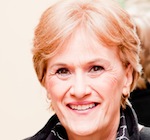 Dr. Wendy M. Duff obtained her BA (1979) from the University of
King's College, her MLS (1983) from Dalhousie University and her Ph.D. (1996) from the University of
Pittsburgh. She is the Director of the Digital Curation Institute, and teaches archives and records
management with a focus on access to archival materials. She is a founding member of AX-SNet, an
evolving international team of researchers interested in facilitating access to primary materials.
She has also served as a member of the ICA Adhoc Commission on Descriptive Standards, the Encoded
Archival Description Working Group, and The Canadian Council of Archives Standards Committee. Her
current research focuses on archival users, access to archival material, digital curation, and the
convergence of libraries, archives and museums. One of her collaborative projects investigated the
impact of technology on museums for the Canadian Heritage Information Network.
Dr. Wendy M. Duff obtained her BA (1979) from the University of
King's College, her MLS (1983) from Dalhousie University and her Ph.D. (1996) from the University of
Pittsburgh. She is the Director of the Digital Curation Institute, and teaches archives and records
management with a focus on access to archival materials. She is a founding member of AX-SNet, an
evolving international team of researchers interested in facilitating access to primary materials.
She has also served as a member of the ICA Adhoc Commission on Descriptive Standards, the Encoded
Archival Description Working Group, and The Canadian Council of Archives Standards Committee. Her
current research focuses on archival users, access to archival material, digital curation, and the
convergence of libraries, archives and museums. One of her collaborative projects investigated the
impact of technology on museums for the Canadian Heritage Information Network.  Dr. Tula Giannini is Dean and Professor of the School of
Information and library Science, Pratt Institute. She holds a PhD from Bryn Mawr College, an MLS
from Rutgers University, and bachelor and master degrees from the Manhattan School of Music. Before
coming to Pratt in 1998, she taught at Catholic University, Rutgers University and University of
Hawaii, was Curator of Musical Instruments at the Library of Congress, Director of the Talbott
Library, Westminster Choir College, and Head, Collection Management at Adelphi University. An
interdisciplinary researcher across information science and musicology, her IS work focuses on users
and user experience in the digital world and is published widely in peer-reviewed journals. A
leading scholar of French musical wind instruments, her book, Great Flute Makers of France, is
considered a seminal work. Her 24 articles in the New Grove Dictionary of Music and other Oxford
University Press publications also appear in Grove Music Online. She has pioneered programs with
prominent New York institutions such as the New York Public Library and the Metropolitan Museum of
Art. She has designed several successful collaborative projects funded by the Institute of Museum
and Library Services from 2004 to present, with awards totaling about 3.3 million dollars. Currently
she is project director for two IMLS grants, Project CHART (Cultural Heritage, Access, Research &
Technology) with the Brooklyn Historical Society, Brooklyn Museum and Brooklyn Public Library, and
M-LEAD-TWO (Museum Libraries, Education & Digitization, Technology-Web-Online) with the Brooklyn
Museum, the Frick and NYARC (New York Art Resources Consortium) focusing cataloging for their shared
catalog with MoMA and linking digitized collections. This March 2013, Project CHART launched the
website, Brooklyn Visual Heritage.org.
Dr. Tula Giannini is Dean and Professor of the School of
Information and library Science, Pratt Institute. She holds a PhD from Bryn Mawr College, an MLS
from Rutgers University, and bachelor and master degrees from the Manhattan School of Music. Before
coming to Pratt in 1998, she taught at Catholic University, Rutgers University and University of
Hawaii, was Curator of Musical Instruments at the Library of Congress, Director of the Talbott
Library, Westminster Choir College, and Head, Collection Management at Adelphi University. An
interdisciplinary researcher across information science and musicology, her IS work focuses on users
and user experience in the digital world and is published widely in peer-reviewed journals. A
leading scholar of French musical wind instruments, her book, Great Flute Makers of France, is
considered a seminal work. Her 24 articles in the New Grove Dictionary of Music and other Oxford
University Press publications also appear in Grove Music Online. She has pioneered programs with
prominent New York institutions such as the New York Public Library and the Metropolitan Museum of
Art. She has designed several successful collaborative projects funded by the Institute of Museum
and Library Services from 2004 to present, with awards totaling about 3.3 million dollars. Currently
she is project director for two IMLS grants, Project CHART (Cultural Heritage, Access, Research &
Technology) with the Brooklyn Historical Society, Brooklyn Museum and Brooklyn Public Library, and
M-LEAD-TWO (Museum Libraries, Education & Digitization, Technology-Web-Online) with the Brooklyn
Museum, the Frick and NYARC (New York Art Resources Consortium) focusing cataloging for their shared
catalog with MoMA and linking digitized collections. This March 2013, Project CHART launched the
website, Brooklyn Visual Heritage.org.
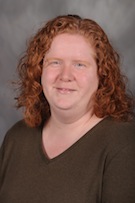 Dr. Karen Gracy is Assistant Professor at the
School of Library and Information Science, Kent State University. She teaches in the areas of
digital preservation, digital curation, and archival studies, with a particular interest in media
archives. Her research interests include audiovisual archiving, preservation and curation of
digital media, linked data applications for increased access to cultural heritage, preservation
education, and the social contexts of information creation and use, focusing on ethics and values.
Her first book, Film Preservation: Competing Definitions of Value, Use, and Practice, was published
by the Society of American Archivists in 2007. Other recent and forthcoming publications include:
"Distribution and Consumption Patterns of Archival Moving Images in Online Environments," American
Archivist 75.2 (2012): 422-455; "Exploring Methods to Improve Access to Music by Connecting Library
Data to Linked Data: A Report of Methodologies and Preliminary Findings, with Marcia Lei Zeng, and
Laurence Skirvin, JASIST (in press, 2013); "Ambition and Ambivalence: A Study of Professional
Attitudes Toward Digital Distribution of Archival Moving Images, " American Archivist, 76, no. 2 (in
press, fall 2013). "The Evolution and Integration of Moving Image Preservation Work in Cultural
Heritage Institutions, " Information & Culture 48.3 (in press, fall 2013); and "Preservation in a
Time of Transition: Redefining Stewardship of Time-Based Media in the Digital Age, " Preserving Our
Heritage: Perspectives from Antiquity to the Digital Age, ed. Michèle V. Cloonan. New York:
Neal-Schuman, (in press) 2013.
Dr. Karen Gracy is Assistant Professor at the
School of Library and Information Science, Kent State University. She teaches in the areas of
digital preservation, digital curation, and archival studies, with a particular interest in media
archives. Her research interests include audiovisual archiving, preservation and curation of
digital media, linked data applications for increased access to cultural heritage, preservation
education, and the social contexts of information creation and use, focusing on ethics and values.
Her first book, Film Preservation: Competing Definitions of Value, Use, and Practice, was published
by the Society of American Archivists in 2007. Other recent and forthcoming publications include:
"Distribution and Consumption Patterns of Archival Moving Images in Online Environments," American
Archivist 75.2 (2012): 422-455; "Exploring Methods to Improve Access to Music by Connecting Library
Data to Linked Data: A Report of Methodologies and Preliminary Findings, with Marcia Lei Zeng, and
Laurence Skirvin, JASIST (in press, 2013); "Ambition and Ambivalence: A Study of Professional
Attitudes Toward Digital Distribution of Archival Moving Images, " American Archivist, 76, no. 2 (in
press, fall 2013). "The Evolution and Integration of Moving Image Preservation Work in Cultural
Heritage Institutions, " Information & Culture 48.3 (in press, fall 2013); and "Preservation in a
Time of Transition: Redefining Stewardship of Time-Based Media in the Digital Age, " Preserving Our
Heritage: Perspectives from Antiquity to the Digital Age, ed. Michèle V. Cloonan. New York:
Neal-Schuman, (in press) 2013.
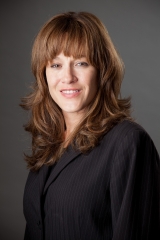 Dr. Carolyn
Hank is an Assistant Professor at the School of Information Sciences at the University of Tennessee.
She received her Ph.D. from the School of Information and Library Science (SILS) at the University
of North Carolina at Chapel Hill (UNC-CH). Her dissertation research looked at scholars who blog,
and how blog characteristics and blogger behaviors, preferences, and perceptions impact digital
preservation. Currently, she is PI on an OCLC/ALISE grant funded study,“The Biblioblogosphere: A
Comparison of Communication and Preservation Perceptions and Practices between Blogging LIS
Scholar-Practitioners and LIS Scholar-Researchers.” She is also PI on another ALISE-funded study
looking at information and library science faculty and student interactions via Facebook. She serves
as the North American academic expert on BlogForver, a co-funded European Commission project on blog
preservation. Previously, she served as project manager for the DigCCurr I project (2007-2009) and
program manager for the UNC-CH Digital Curation/Institutional Repository Committee (2005-2008),and
Carolina Digital Repository (2008-2009), and was an assistant professor at the School of Information
Studies at McGill University (2010-2012). She teaches in the areas of digital preservation and
access, digital curation, human information interactions, and research methods.
Dr. Carolyn
Hank is an Assistant Professor at the School of Information Sciences at the University of Tennessee.
She received her Ph.D. from the School of Information and Library Science (SILS) at the University
of North Carolina at Chapel Hill (UNC-CH). Her dissertation research looked at scholars who blog,
and how blog characteristics and blogger behaviors, preferences, and perceptions impact digital
preservation. Currently, she is PI on an OCLC/ALISE grant funded study,“The Biblioblogosphere: A
Comparison of Communication and Preservation Perceptions and Practices between Blogging LIS
Scholar-Practitioners and LIS Scholar-Researchers.” She is also PI on another ALISE-funded study
looking at information and library science faculty and student interactions via Facebook. She serves
as the North American academic expert on BlogForver, a co-funded European Commission project on blog
preservation. Previously, she served as project manager for the DigCCurr I project (2007-2009) and
program manager for the UNC-CH Digital Curation/Institutional Repository Committee (2005-2008),and
Carolina Digital Repository (2008-2009), and was an assistant professor at the School of Information
Studies at McGill University (2010-2012). She teaches in the areas of digital preservation and
access, digital curation, human information interactions, and research methods.  Dr. Ross Harvey is a visiting professor at the Graduate School
of Library and Information Science, Simmons College, Boston. He has held positions at universities
in Australia, Singapore and New Zealand. His current research and teaching interests focus on the
stewardship of digital materials in libraries and archives, particularly on its preservation. His
most recent books are Preserving Digital Materials, 2nd ed. (Munich: De Gruyter, 2011) and Digital
Curation: A How-To-Do-It Manual (New York: Neal Schuman; London: Facet, 2010), winner of the 2011
Society of American Archivists Preservation Publication Award 2011.
Dr. Ross Harvey is a visiting professor at the Graduate School
of Library and Information Science, Simmons College, Boston. He has held positions at universities
in Australia, Singapore and New Zealand. His current research and teaching interests focus on the
stewardship of digital materials in libraries and archives, particularly on its preservation. His
most recent books are Preserving Digital Materials, 2nd ed. (Munich: De Gruyter, 2011) and Digital
Curation: A How-To-Do-It Manual (New York: Neal Schuman; London: Facet, 2010), winner of the 2011
Society of American Archivists Preservation Publication Award 2011.  Dr. Christopher (Cal) Lee (Co-PI) is Associate Professor at the School of
Information and Library Science at the University of North Carolina, Chapel Hill. He teaches classes
for graduate and undergraduate students, as well as continuing professional education workshops in
archival administration, records management, digital curation, understanding information technology
for managing digital collections, and the construction of digital repository rules. His primary area
of research is the long-term curation of digital collections. He is particularly interested in the
professionalization of this work and the diffusion of existing tools and methods into professional
practice. His research projects have included CAMiLEON, which examined migration vs. emulation as
digital preservation strategies; an in-depth case study of the development of the Reference Model
for an Open Archival Information System (OAIS); VidArch, which investigated the curation of
collections of digital video; DigCCurr and DigCCurr II, which have designed curriculum materials and
a set of field experiences to prepare students for careers in digital curation; and Educating
Stewards of Public Information for the 21st Century (ESOPI-21), which is a joint initiative with the
School of Government at UNC to prepare public sector professionals. Dr.Lee is also one of the
leaders of an effort to design and built a long-term institutional repository at UNC. A major focus
of his work is personal digital archives.
Dr. Christopher (Cal) Lee (Co-PI) is Associate Professor at the School of
Information and Library Science at the University of North Carolina, Chapel Hill. He teaches classes
for graduate and undergraduate students, as well as continuing professional education workshops in
archival administration, records management, digital curation, understanding information technology
for managing digital collections, and the construction of digital repository rules. His primary area
of research is the long-term curation of digital collections. He is particularly interested in the
professionalization of this work and the diffusion of existing tools and methods into professional
practice. His research projects have included CAMiLEON, which examined migration vs. emulation as
digital preservation strategies; an in-depth case study of the development of the Reference Model
for an Open Archival Information System (OAIS); VidArch, which investigated the curation of
collections of digital video; DigCCurr and DigCCurr II, which have designed curriculum materials and
a set of field experiences to prepare students for careers in digital curation; and Educating
Stewards of Public Information for the 21st Century (ESOPI-21), which is a joint initiative with the
School of Government at UNC to prepare public sector professionals. Dr.Lee is also one of the
leaders of an effort to design and built a long-term institutional repository at UNC. A major focus
of his work is personal digital archives.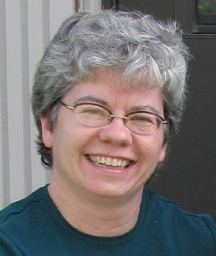 Dr. Nancy Y. McGovern
is Head, Curation and Preservation Services, at MIT Libraries, a role that encompasses the long-term
management of analog and digital content. Her responsibilities include developing and promulgating
policies that reflect prevailing standards and practice for managing digital content over time and
developing appropriate long-term strategies for an expanding range of digital content. Her research
interests include the organizational infrastructure for life cycle management and the means for
organizations and communities to continually respond to the opportunities and challenges of evolving
technology. Prior to MIT, she was Digital Preservation Officer (DPO) and a Research Assistant
Professor for five years at the Inter-university Consortium for Political and Social Research
(ICPSR), a social science data archive at the University of Michigan that was established in 1962.
She has twenty-five years of experience with the long-term management of digital content, including
a decade working on electronic records at the U.S. National Archives and five years as Digital
Preservation Officer and Director of Research and Assessment Services at Cornell University Library.
She completed her PhD on technology responsiveness for the digital preservation community at
University College London in 2009. She was designated a Fellow of the Society of American Archivists
(SAA) in 2009 and a Digital Preservation Pioneer by the National Information Infrastructure
Preservation Program (NDIIPP) of the Library of Congress in 2010.
Dr. Nancy Y. McGovern
is Head, Curation and Preservation Services, at MIT Libraries, a role that encompasses the long-term
management of analog and digital content. Her responsibilities include developing and promulgating
policies that reflect prevailing standards and practice for managing digital content over time and
developing appropriate long-term strategies for an expanding range of digital content. Her research
interests include the organizational infrastructure for life cycle management and the means for
organizations and communities to continually respond to the opportunities and challenges of evolving
technology. Prior to MIT, she was Digital Preservation Officer (DPO) and a Research Assistant
Professor for five years at the Inter-university Consortium for Political and Social Research
(ICPSR), a social science data archive at the University of Michigan that was established in 1962.
She has twenty-five years of experience with the long-term management of digital content, including
a decade working on electronic records at the U.S. National Archives and five years as Digital
Preservation Officer and Director of Research and Assessment Services at Cornell University Library.
She completed her PhD on technology responsiveness for the digital preservation community at
University College London in 2009. She was designated a Fellow of the Society of American Archivists
(SAA) in 2009 and a Digital Preservation Pioneer by the National Information Infrastructure
Preservation Program (NDIIPP) of the Library of Congress in 2010.
Dr. William E. Moen received his Ph.D. from Syracuse University and has been a faculty member at the University of North Texas since 1996. Her serves as the Associate Dean for Research in the College of Information. In addition, he is the Director of the Texas Center for Digital Knowledge, and an Associate Professor in the Department of Library and Information Sciences. He is currently Principal Investigator on an IMLS-funded grant to develop four graduate courses to address digital curation and data management.
 Dr. Carole L. Palmer is Director of the Center for Informatics
Research in Science and Scholarship (CIRSS) and Professor in the Graduate School of Library and
Information Science (GSLIS) at the University of Illinois at Urbana-Champaign. Her research
investigates problems in scientific and scholarly information work, aimed at advancing large-scale
digital research collections and the curation of research data for interdisciplinary inquiry and
innovation. She currently leads research teams studying data curation needs and the reuse value of
data in the sciences, and aggregation and access problems for digital cultural heritage collections.
She is PI on the Site-Based Data Curation at Yellowstone National Park project and the Data Curation
Education in Research Centers grant, both funded by IMLS. She served as co-PI on the NSF Data
Conservancy initiative and has been PI on the IMLS Digital Collections and Content project since
2007. Palmer has been leading education initiatives in data curation at GSLIS since 2005, including
a specialization in data curation and a biological information specialist program.
Dr. Carole L. Palmer is Director of the Center for Informatics
Research in Science and Scholarship (CIRSS) and Professor in the Graduate School of Library and
Information Science (GSLIS) at the University of Illinois at Urbana-Champaign. Her research
investigates problems in scientific and scholarly information work, aimed at advancing large-scale
digital research collections and the curation of research data for interdisciplinary inquiry and
innovation. She currently leads research teams studying data curation needs and the reuse value of
data in the sciences, and aggregation and access problems for digital cultural heritage collections.
She is PI on the Site-Based Data Curation at Yellowstone National Park project and the Data Curation
Education in Research Centers grant, both funded by IMLS. She served as co-PI on the NSF Data
Conservancy initiative and has been PI on the IMLS Digital Collections and Content project since
2007. Palmer has been leading education initiatives in data curation at GSLIS since 2005, including
a specialization in data curation and a biological information specialist program. Dr. Helen R. Tibbo. Dr. Tibbo (co-PI) is an Alumni Distinguished Professor at the School of
Information and Library Science (SILS) at the University of North Carolina at Chapel Hill (UNC-CH),
and teaches in the areas of archives and records management, digital preservation and access,
appraisal, and archival reference and outreach. She is also a Fellow and former President of the
Society of American Archivists (SAA). From 2006-2009, Dr. Tibbo was the Principal Investigator (PI)
for the IMLS (Institute for Museum and Library Services)-funded DigCCurr I project that developed an
International Digital Curation Curriculum for master’s level students
(www.ils.unc.edu/digccurr). She is also the PI for DigCCurr II (2008-2012) that extends the Digital
Curation Curriculum to the doctoral level. In 2009, IMLS awarded Prof. Tibbo two additional
projects, Educating Stewards of Public Information in the 21st Century (ESOPI-21) and Closing the
Digital Curation Gap (CDCG). ESOPI-21 is a partnership with UNC’s School of Government to
provide students with a Master’s of Science in Library/Information Science and a
Master’s of Public Administration so that they can work in the public policy arena concerning
digital preservation and curation issues and laws. CDCG is a collaboration with the Joint
Information Systems Committee (JISC) and the Digital Curation Center (DCC), both of the United
Kingdom, to explore educational and guidance needs of cultural heritage information professionals in
the digital curation domain in the US and the UK. Dr. Tibbo is a co-PI with collaborators from the
University of Michigan and the University of Toronto on a National Historical Publications and
Records Commission (NHPRC)-funded project to develop standardized metrics for assessing use and user
services for primary sources in government settings. This project extends work that explored
user-based evaluation in academic archival settings funded by the Mellon Foundation. Prof. Tibbo is
also co-PI on the IMLS-Funded Policy-Driven Repository Interoperability (PoDRI) project led by Dr.
Richard Marciano.
Dr. Helen R. Tibbo. Dr. Tibbo (co-PI) is an Alumni Distinguished Professor at the School of
Information and Library Science (SILS) at the University of North Carolina at Chapel Hill (UNC-CH),
and teaches in the areas of archives and records management, digital preservation and access,
appraisal, and archival reference and outreach. She is also a Fellow and former President of the
Society of American Archivists (SAA). From 2006-2009, Dr. Tibbo was the Principal Investigator (PI)
for the IMLS (Institute for Museum and Library Services)-funded DigCCurr I project that developed an
International Digital Curation Curriculum for master’s level students
(www.ils.unc.edu/digccurr). She is also the PI for DigCCurr II (2008-2012) that extends the Digital
Curation Curriculum to the doctoral level. In 2009, IMLS awarded Prof. Tibbo two additional
projects, Educating Stewards of Public Information in the 21st Century (ESOPI-21) and Closing the
Digital Curation Gap (CDCG). ESOPI-21 is a partnership with UNC’s School of Government to
provide students with a Master’s of Science in Library/Information Science and a
Master’s of Public Administration so that they can work in the public policy arena concerning
digital preservation and curation issues and laws. CDCG is a collaboration with the Joint
Information Systems Committee (JISC) and the Digital Curation Center (DCC), both of the United
Kingdom, to explore educational and guidance needs of cultural heritage information professionals in
the digital curation domain in the US and the UK. Dr. Tibbo is a co-PI with collaborators from the
University of Michigan and the University of Toronto on a National Historical Publications and
Records Commission (NHPRC)-funded project to develop standardized metrics for assessing use and user
services for primary sources in government settings. This project extends work that explored
user-based evaluation in academic archival settings funded by the Mellon Foundation. Prof. Tibbo is
also co-PI on the IMLS-Funded Policy-Driven Repository Interoperability (PoDRI) project led by Dr.
Richard Marciano.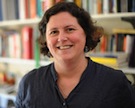 Dr. Kathy Wisser is an assistant professor at the Graduate
School of Library and Information Science at Simmons College in Boston, Massachusetts. She received
a BA in History from Bates College in 1989, completed a MA in History from the University of New
Hampshire in 1997, an MSLS in 2000, and a PhD in Information Science in 2009, both from the
University of North Carolina at Chapel Hill. Her dissertation focused on classification theory and
discourse. Wisser spent five years as the Metadata Coordinator for NC ECHO, a statewide program that
encourages and supports use of appropriate metadata by member institutions to ensure online access
to cultural heritage information facilitation, workshop instruction and individual institutional
consultation. Prior to that, she spent two years as a Libraries Fellow in the North Carolina State
University (NCSU) Libraries Cataloging and Special Collections departments. Beginning in 2000, she
served as a teaching fellow at the School of Information and Library Science at the University of
North Carolina, and from that time has taught a number of courses in the organization of information
and metadata, archives and archival description, and the history of libraries. In the 2008-2009
academic year, she also served as Director of Instructional Services for SILS, which included
running the field experience program for the school. She has advised over twenty master's papers. In
addition, Wisser taught numerous workshops both locally and nationally on metadata, Encoded Archival
Description, and related topics. She has served as Chair of the SAA EAD Roundtable 2003-2004 and the
SAA Description Section 2004-2005, and is currently the Chair of the Archival Educators Roundtable
and co-Chair of the Technical Subcommittee for Encoded Archival Context.
Dr. Kathy Wisser is an assistant professor at the Graduate
School of Library and Information Science at Simmons College in Boston, Massachusetts. She received
a BA in History from Bates College in 1989, completed a MA in History from the University of New
Hampshire in 1997, an MSLS in 2000, and a PhD in Information Science in 2009, both from the
University of North Carolina at Chapel Hill. Her dissertation focused on classification theory and
discourse. Wisser spent five years as the Metadata Coordinator for NC ECHO, a statewide program that
encourages and supports use of appropriate metadata by member institutions to ensure online access
to cultural heritage information facilitation, workshop instruction and individual institutional
consultation. Prior to that, she spent two years as a Libraries Fellow in the North Carolina State
University (NCSU) Libraries Cataloging and Special Collections departments. Beginning in 2000, she
served as a teaching fellow at the School of Information and Library Science at the University of
North Carolina, and from that time has taught a number of courses in the organization of information
and metadata, archives and archival description, and the history of libraries. In the 2008-2009
academic year, she also served as Director of Instructional Services for SILS, which included
running the field experience program for the school. She has advised over twenty master's papers. In
addition, Wisser taught numerous workshops both locally and nationally on metadata, Encoded Archival
Description, and related topics. She has served as Chair of the SAA EAD Roundtable 2003-2004 and the
SAA Description Section 2004-2005, and is currently the Chair of the Archival Educators Roundtable
and co-Chair of the Technical Subcommittee for Encoded Archival Context.  Kam Woods is a Postdoctoral Research Associate in the School of
Information and Library Science at the University of North Carolina at Chapel Hill. He is currently
Technical Lead on the BitCurator project, and works with Dr. Cal Lee developing techniques and tools
to assist in long-term archiving of born-digital data. Kam's research focuses on long-term preservation of born-digital materials. He is interested in
interdisciplinary approaches that combine technologies and expertise in the areas of archiving,
computer science, and digital forensics for the purpose of enabling and maintaining access to
digital objects that are at risk due to obsolescence. Prior to his current work at UNC, Kam worked
with Cal Lee on the development of educational materials to support the use of realistic forensic
datasets in professional training and to identify and explore novel uses of forensic data and tools
in the context of digital archives.
Kam Woods is a Postdoctoral Research Associate in the School of
Information and Library Science at the University of North Carolina at Chapel Hill. He is currently
Technical Lead on the BitCurator project, and works with Dr. Cal Lee developing techniques and tools
to assist in long-term archiving of born-digital data. Kam's research focuses on long-term preservation of born-digital materials. He is interested in
interdisciplinary approaches that combine technologies and expertise in the areas of archiving,
computer science, and digital forensics for the purpose of enabling and maintaining access to
digital objects that are at risk due to obsolescence. Prior to his current work at UNC, Kam worked
with Cal Lee on the development of educational materials to support the use of realistic forensic
datasets in professional training and to identify and explore novel uses of forensic data and tools
in the context of digital archives. Dr. Jane Zhang. Jane Zhang is an assistant professor at the School of
Library and Information Science, Catholic University of America, Washington D.C. She holds a PhD in
Library and Information Science with an archival concentration from Simmons College, Boston, and a
joint Master of Archival Studies and Library and Information Studies from University of British
Columbia, Canada. Her teaching and research areas include records and recordkeeping, archival theory
and practice, electronic records and digital archives, digital curation and preservation,
information organization theory and application. She worked at Harvard University Archives and
University of Calgary Archives before joining the faculty at Catholic University.
Dr. Jane Zhang. Jane Zhang is an assistant professor at the School of
Library and Information Science, Catholic University of America, Washington D.C. She holds a PhD in
Library and Information Science with an archival concentration from Simmons College, Boston, and a
joint Master of Archival Studies and Library and Information Studies from University of British
Columbia, Canada. Her teaching and research areas include records and recordkeeping, archival theory
and practice, electronic records and digital archives, digital curation and preservation,
information organization theory and application. She worked at Harvard University Archives and
University of Calgary Archives before joining the faculty at Catholic University.
For more information, e-mail Dr. Helen Tibbo at [tibbo (at) email (dot) unc (dot) edu] or
Dr. Cal Lee at [callee (at) email (dot) unc (dot) edu].
Contacts
Dr. Helen R.
Tibbo
Dr. Christopher (Cal)
Lee
The Digital Professional Institute was initiated as part of the DigCCurr II project, supported by the Institute of Museum and Library Services (Grant Award #RE-05-08-0060-08). Additional support has been provided by the School of Information and Library Science, UNC-Chapel Hill.
